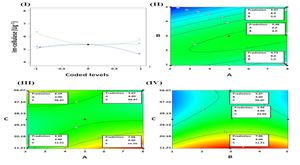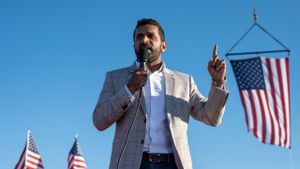Bangladesh is currently grappling with intense political turmoil following the departure of former Prime Minister Sheikh Hasina, leading to widespread protests and the rise of interim leader Muhammad Yunus. The crisis has highlighted the influence of Indian media, which many observers claim has exacerbated tensions between the two nations.
The political scene is largely dominated by two major parties: the Awami League, formerly led by Hasina, and the Bangladesh Nationalist Party (BNP). These political factions have been embroiled in power struggles for decades, and the recent events only heightened this rivalry. The Jamaat-e-Islami is also present, yet its influence remains nominal.
Following Hasina’s ousting and her subsequent flight to India, the nation witnessed significant protests led predominantly by disillusioned youth opposing her authoritarian regime. The protests drew attention not just domestically but also internationally, particularly with respect to the role of the Indian media, which has been criticized for its contentious framing of the situation.
Reactions from activists and residents on the ground reflect deep frustration with how Bangladeshi news and international media are covering the crisis. One activist, Zakir Hossain, expressed concern over the sensationalized portrayals of the turmoil, particularly the narrative of Pakistan-like radicalization taking root within the Bangladeshi populace. “Why do they bring conspiracy theories about everything?” he lamented. Many feel such narratives undermine the merit of the youth movement aimed at resisting any form of governmental oppression.
Adding complexity to the crisis, significant changes occurred swiftly as the U.S. halted financial aid to Bangladesh, largely viewed as retaliation for the government’s perceived failures. Reports indicate the International Centre for Diarrhoeal Disease Research (icddr,b) was among the first institutions affected, leading to mass layoffs of over 1,000 employees. Senior Manager AKM Tariful Islam Khan confirmed the agency’s grim situation, stating, “The U.S. government has stopped our funds. The agency will not be able to work on any new project because we lack funding for our future plans.”
Economic consequences of these rapid political changes have left many Bangladeshis anxious for the future. Over 60 organizations dependent on U.S. financial support are now threatened with closure, potentially exacerbated by the growing unemployment rates following the financial aid cuts. The historical dependence of Bangladeshi agencies on U.S. support—averaging over $200 million annually—now presents dire challenges for economic stability.
Political analysts argue the Indian media’s portrayal has not only skewed perceptions but actively fueled anti-India sentiments among the Bangladeshi populace. Many citizens perceive this media portrayal as intrusive interference, with one citizen stating, “I’ve stopped watching Indian news. They care more about Sheikh Hasina than about people like me.”
This sentiment is echoed by prominent civil society leader Shamsul Huda, who noted, “Students are right to fight for their rights; it’s their fundamental duty within any democracy.” While there are discussions about constitutional reforms reflecting Bangladesh's diverse populace, Huda expressed caution about external narratives fostering discord.
On the matter of Hindus and other ethnic minorities facing violence during the crisis, the Bangladeshi interim government has been accused of neglecting their plight. Relations between India and Bangladesh have soured under Yunus’s leadership, raising concerns about community safety and governance. Criticism mounts as reports emerge accusing radical Islamist elements of exploiting the political divide to target minority groups.
Conversations around future governance continue, and activists are hopeful for significant constitutional reforms. Activist Rowshan Jahan Moni emphasized, “This is not just about changing leaders; it’s about changing the system.” There’s optimism on the ground about returning to normalcy, with citizens expressing desires to overcome political divisions through increased regional solidarity.
Despite the current turmoil, Bangladeshi citizens exhibit resilience. Many advocate for greater unity across South Asia, perceiving democracy as under threat from both authoritarianism and sensational media coverage. Jinnah, a veteran activist, reflects this sentiment, emphasizing, “We must resist tyranny and seek cooperation over division.”
Concrete hopes for the future rest on the ability of the population to confront authoritarianism collectively, not only within Bangladesh but also across the South Asian region. It remains to be seen how the political crisis will resolve and what role the Indian media will play moving forward.



